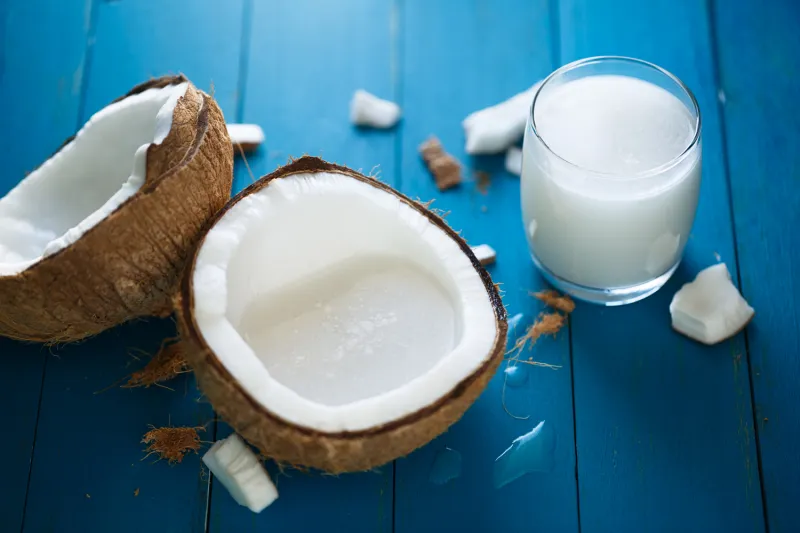
As Asian cuisine has grown in popularity over the past few decades, so has coconut milk. The plant-based milk is an excellent dairy alternative and provides a natural sweetness to dishes without adding sugar. You can also add it to smoothies or drink it on its own. Just be aware that some coconut milk (particularly the canned variety) is intended more for cooking than it is for drinking. It tends to be much thicker than the kind geared toward use in beverages.
Our choices for the best coconut milk offer you rich consistency with great flavor. They’re easy to store, and you can use them to create so many of your favorite international dishes. Let’s look through our favorites to round out your pantry stash.
What is coconut milk, exactly?
With all of the coconut products on the market these days, it’s easy to get confused. Coconut milk is an ingredient or beverage made by processing the meat of the coconut. It’s a popular choice these days because it’s a dairy-free, gluten-free, delicious substitute for dairy milk.
Coconut milk should not be confused with coconut water, which is the sweet, clear liquid found inside young coconuts. Older coconuts that have turned brown most often do not contain any coconut water, as the white flesh inside absorbs the coconut water inside over time.
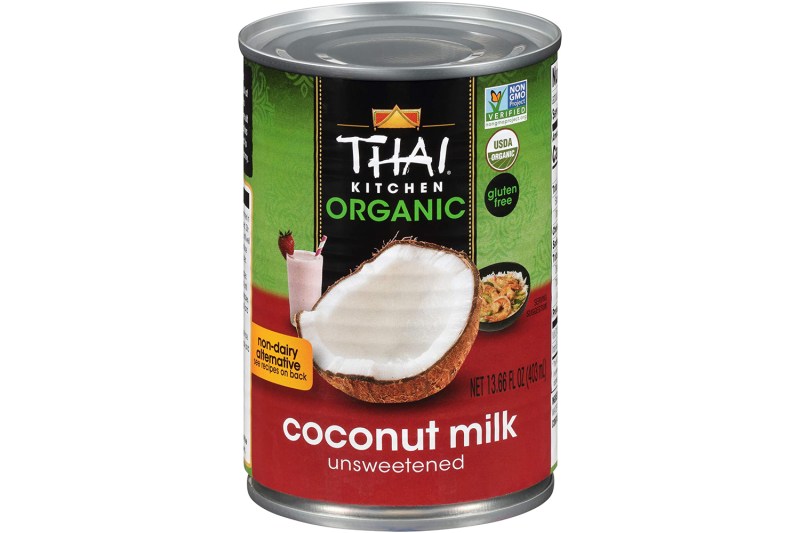
Best overall: Thai Kitchen Organic Unsweetened Coconut Milk
Thai Kitchen uses organic coconut meat from first pressing to create their creamy coconut milk. It’s USDA organic, gluten-free, and contains no preservatives. It’s suitable for a wide array of dishes, including soups and stews, curries, and international dishes as well as beverages. The taste is strong enough to hold up to cooking but mild enough that it doesn’t overpower.
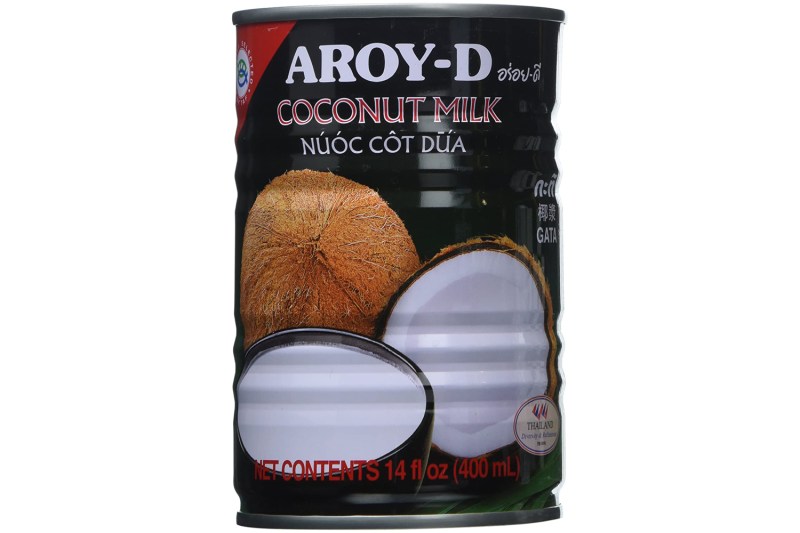
Best for soups: AROY-D Coconut Milk
This option features a creamy texture perfect for adding flavor and thickness to your soups and stews. It has a mild coconut flavor with a smooth mouthfeel, and it pairs well with desserts or savory dishes. It may not have enough flavor to use by itself, but cooked into a dish brings out the overall creaminess.
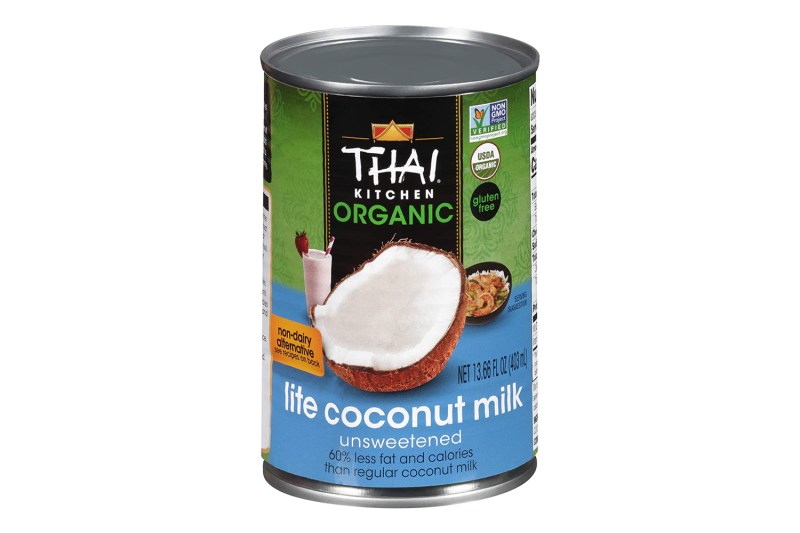
Best “lite” option: Thai Kitchen Unsweetened Lite Coconut Milk
Thai Kitchen’s “lite” option features 60% fewer calories than regular coconut milk but keeps all the flavor. It’s made from organic coconut flesh, fresh-pressed for better texture. It cooks down well and is a preservative-free, USDA organic choice for all your international dishes, smoothies, and hydration beverages.
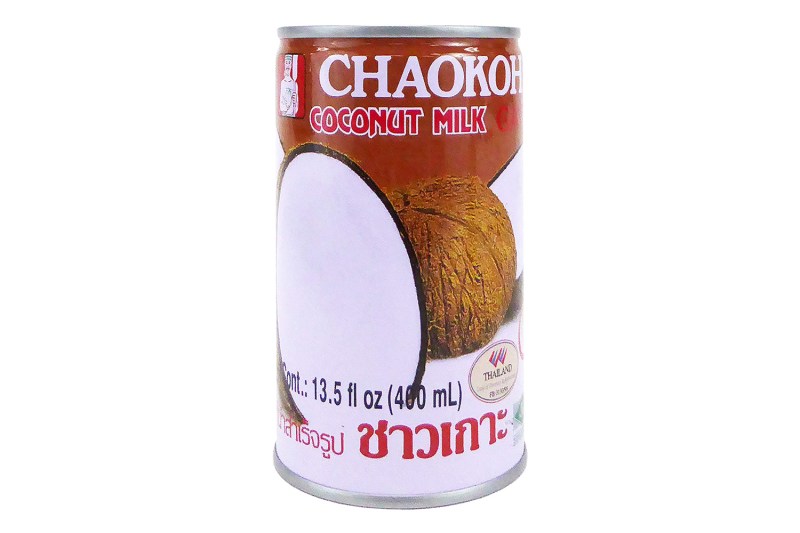
Best all-natural choice: Chaokoh Coconut Milk
This creamy coconut milk comes from mature coconuts subjected to strict quality control. It has no added sugar or sweeteners, no artificial flavors, and no artificial preservatives. It cooks well into your favorite dishes and works in smoothies, thanks to the smooth texture.
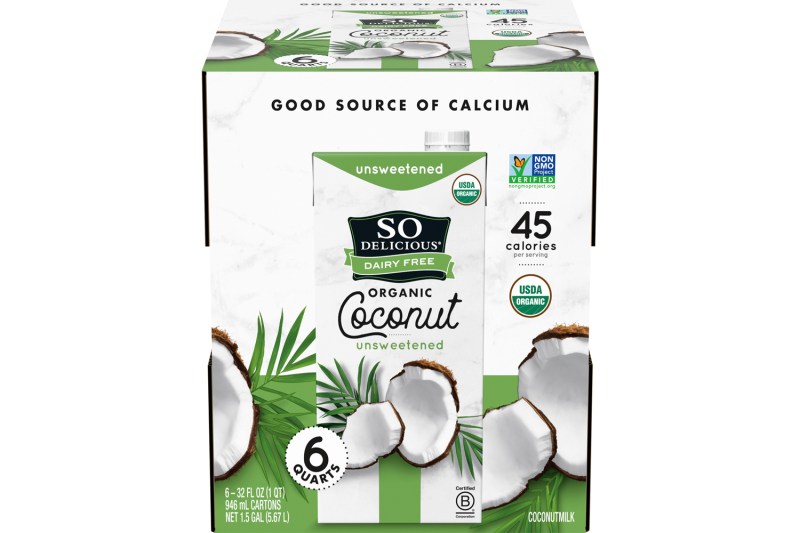
Best for drinking: So Delicious Unsweetened Coconut Milk
The choice from So Delicious offers a pourable coconut milk designed for drinking, cereal, and smoothies. It provides a smooth texture and no extra sweeteners. A convenient screw-on top helps with storage, and it has no artificial colors or flavors, no gluten, and no soy. You can substitute it one-to-one for traditional milk. A convenient carton makes it easy to store when you need it.
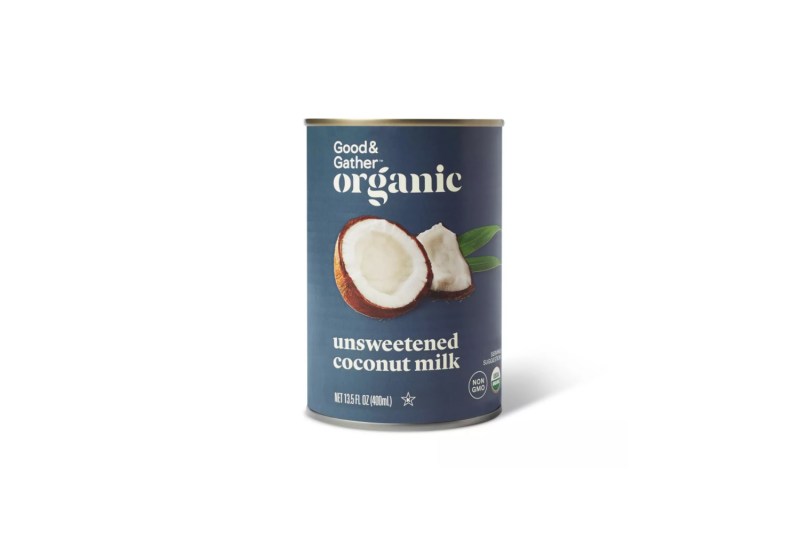
Best organic choice: Good & Gather Coconut Milk
An unsweetened, canned option, this coconut milk features a creamy texture with a mild flavor. It’s USDA-organic and non-GMO with a 17-19% fat content. It cooks well into dishes for a rich outcome and also works well in drinks or smoothies. It also offers a convenient pop-top for easy opening.
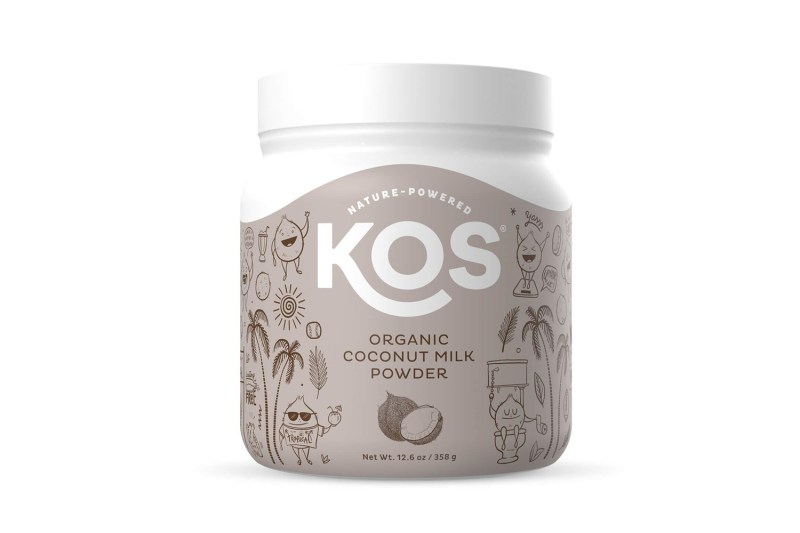
Best powdered version: KOS Organic Coconut Milk Powder
This powdered creamer offers convenient, non-refrigerated storage with a screw-top lid. It’s perfect for traveling or camping when you can’t bring standard milk but works just as well as other non-dairy creamers. It’s shelf-stable and contains no artificial colors or flavors. It doesn’t use preservatives, and it’s one of the best coconut milks for coffee.
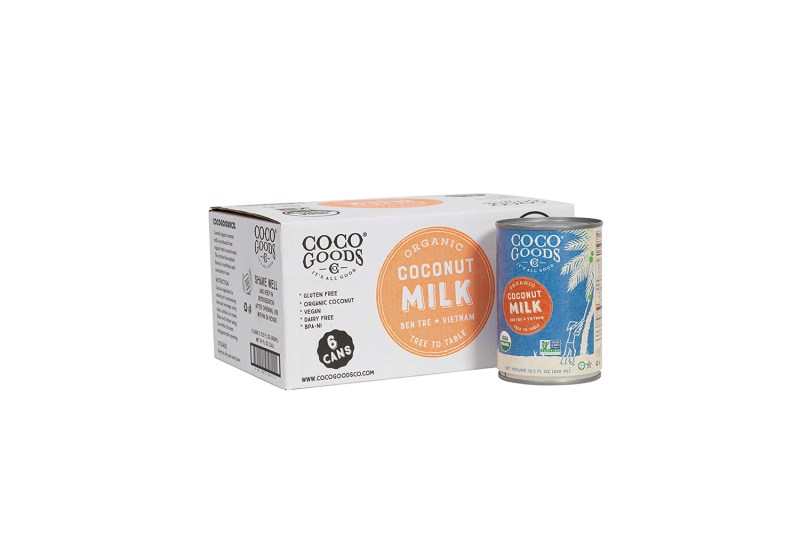
Best single origin: CocoGoods Co Single-Origin Organic Coconut Milk
This option for best organic coconut milk is a mildly sweet coconut milk is made from a single place of origin — Ben Tre, Vietnam. It has a pleasant texture and offers a medium fat content of 8% per serving. It cooks well into international dishes and is kosher certified. The company also reinvests profits into the local community where they source their coconut.
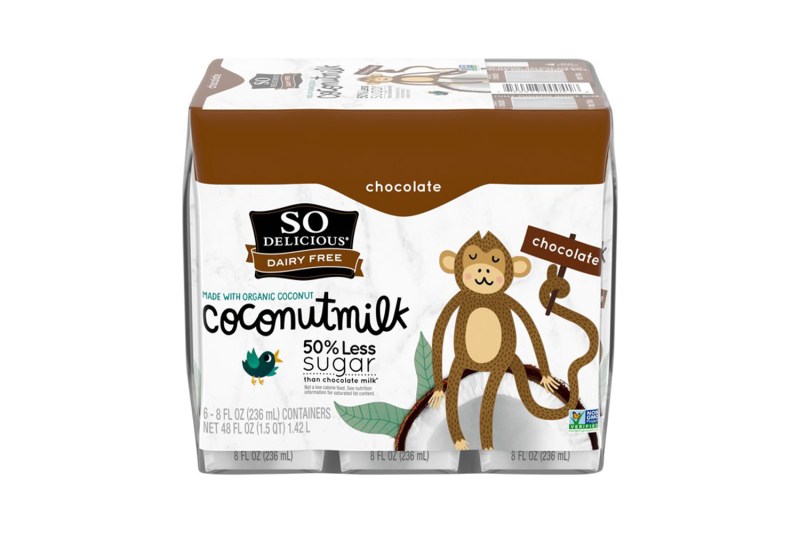
Best single serving: So Delicious Chocolate Coconut Milk
These small, single-serve drinks allow you to take your coconut milk on the go. They feature the great taste of chocolate with the health benefits of coconut milk in a convenient package. It contains around 50% less sugar than standard chocolate milk
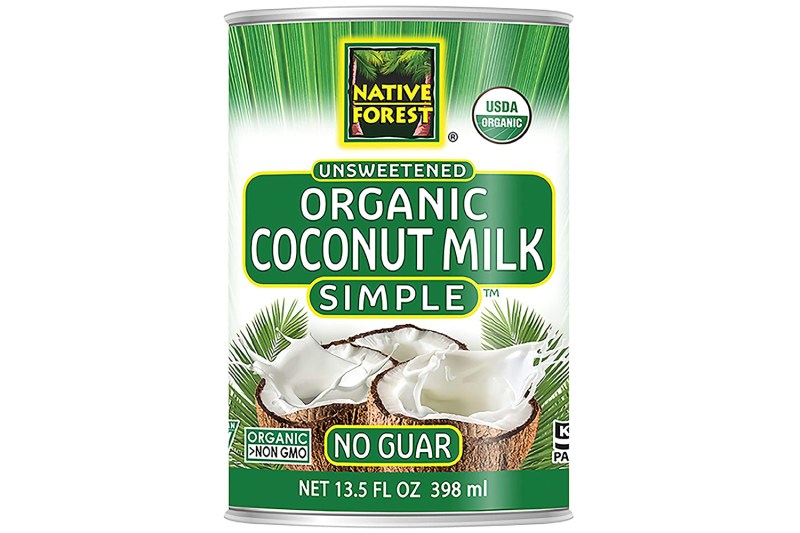
Best guar-free choice: Native Forest Simple Coconut Milk
Guar gum helps prevent separation in many canned products. However, if you’d rather only coconut be in your coconut milk, this option from Native Forest works pretty well. The milk is non-GMO and organic, offering a clean coconut flavor with some separation. Swirl or stir to remix and cook or drink as usual.
Why should I drink coconut milk?
Coconut milk has all sorts of health benefits. It contains a source of healthy fats known as medium-chain triglycerides (MCTs), compounds that help you maintain your appetite and provide energy. It contains small amounts of calcium and iron. It can help reduce discomfort for those with dairy sensitivities when replacing milk in dishes or drinks.
Should I be concerned about the fat?
Coconut milk does contain higher levels of fat than fat-free milk, but there’s a (good) catch. Those fats may help the body maintain energy and help reduce bad cholesterol. As with all things, drinking in moderation can help alleviate some of your concerns.
Can I cook with coconut milk?
Coconut milk is stable and suitable for cooking in a variety of dishes. In some cases, you can replace dairy milk one-to-one with coconut milk. You’ll want to take care that the milk doesn’t scald on the stove, but for the most part, it’s simple to substitute for milk in dishes.
How do I choose the right coconut milk?
You’ll want to pay attention to flavor first. Strong coconut flavor may be great for your tropical smoothie, but it won’t go so well with a savory dish you’re trying to make. A milder flavor can go with that dish without overpowering the other flavors.
Next, you’ll want to explore texture. Some of the coconut milks on the list are thick and creamy. You’d almost need a spoon to get them out. Others are very pourable, almost like regular milk. Depending on what you’re using them for, you may need different textures to get the best result. Finally, look at storage. Do you need a shelf-stable can? Do you want BPA-free containers? Are you willing to refrigerate leftovers? Choose a storage option that works for your needs.
Choosing the right coconut milk
Our choices for best-canned coconut milks and best-tasting coconut milks offer the range of flavor and texture profiles you’ll need to cook every dish and make every drink. It’s time to explore everything the world of coconut milk has to offer.



